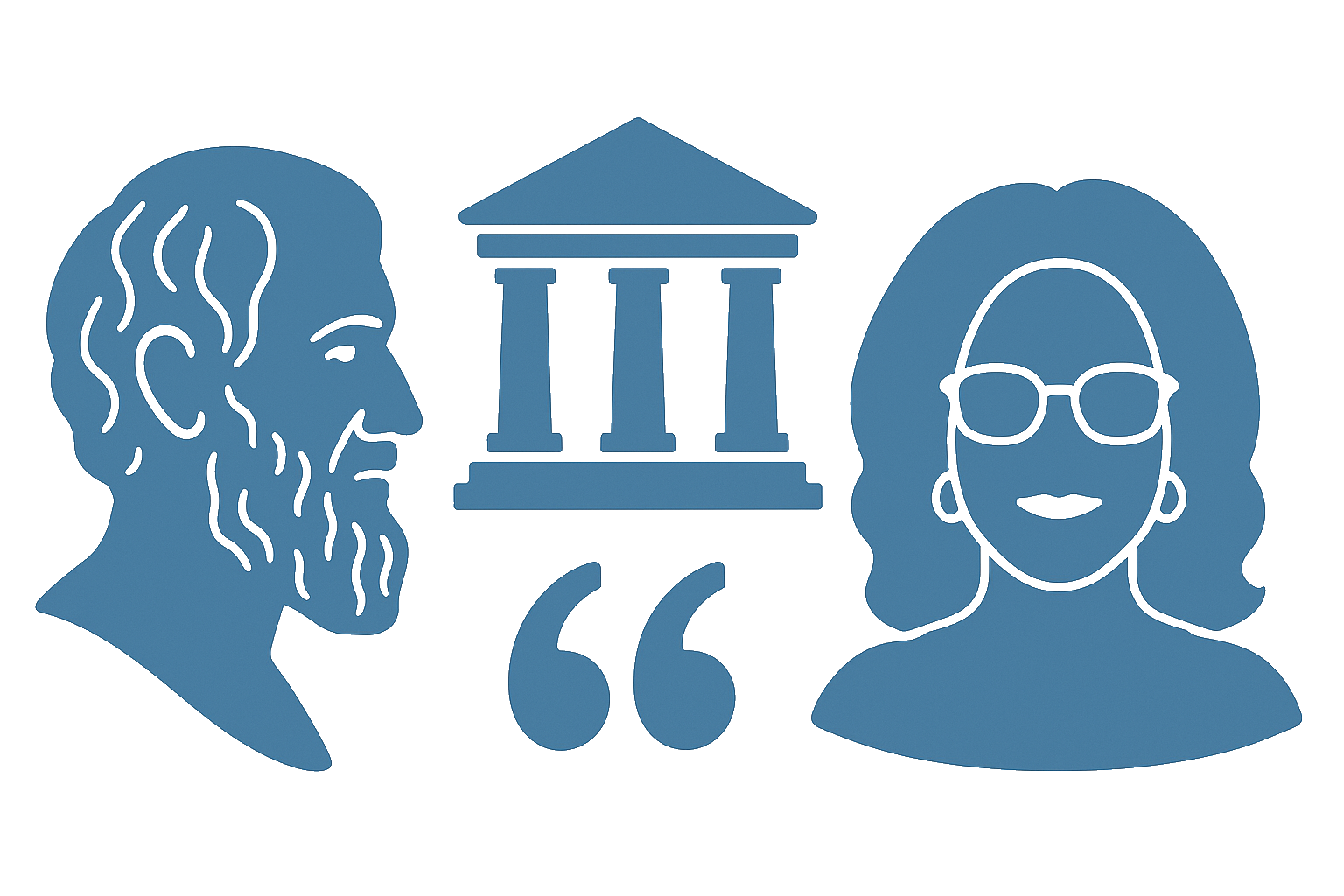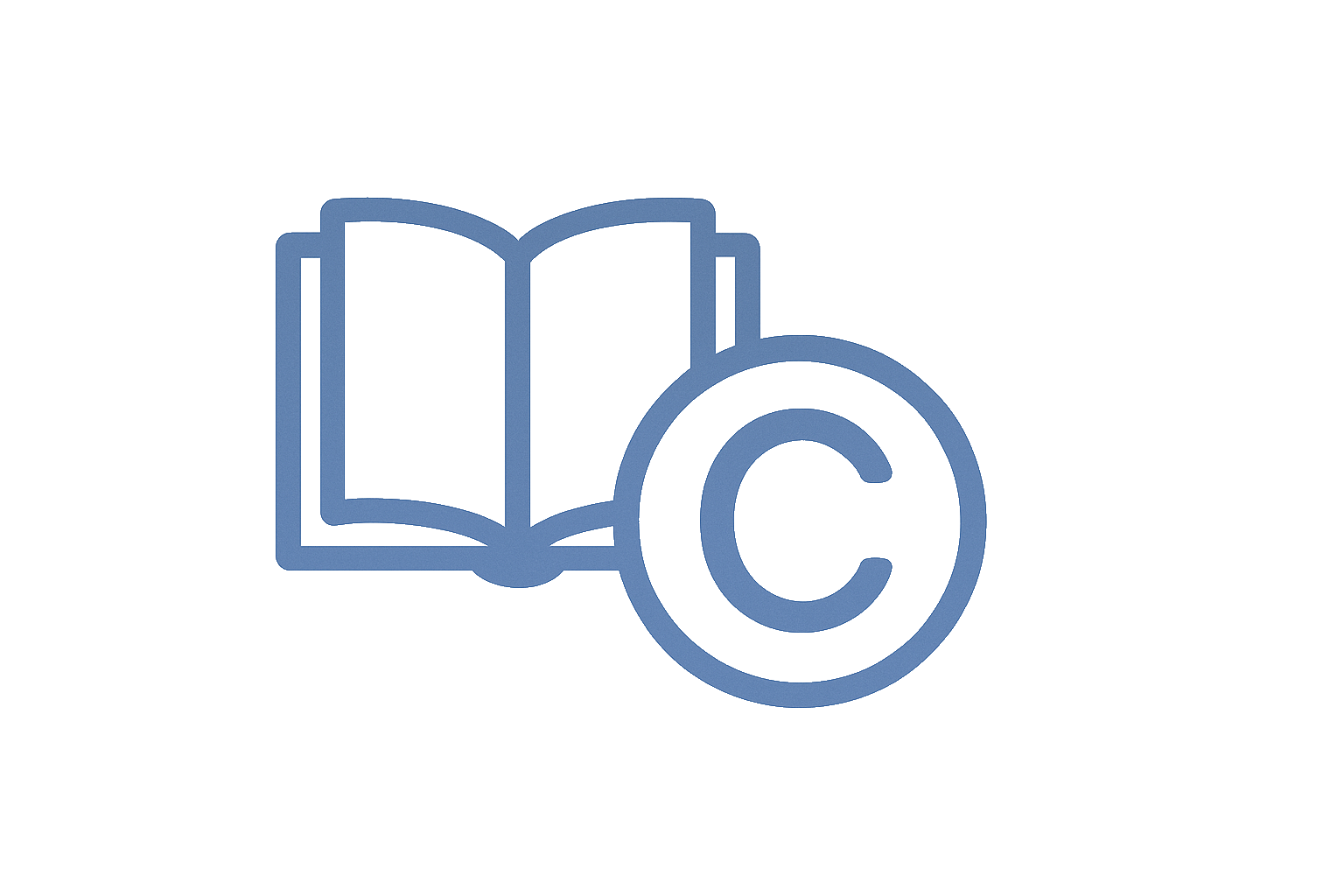📌 Quick Summary
1-Sentence Answer
Famous quotes may seem free to use, but unless they’re in the public domain or fall under fair use, quoting them in books can infringe copyright.
The Article Overview
This article unpacks when you can legally use famous quotes in your writing, how copyright and public domain laws apply, real-world publishing cases, and how to quote responsibly without accidentally turning your manuscript into Exhibit A in a courtroom.
❓ Common Questions & Answers
Q1: Are all famous quotes in the public domain?
Not necessarily. Quotes by authors who died more than 70 years ago are usually public domain, but modern quotes often remain protected under copyright.
Q2: Can I use short quotes in my book without permission?
Sometimes. “Fair use” might apply, but the context, length, and purpose all matter. A short quote can still violate copyright if it’s distinctive and not transformative.
Q3: What if I credit the author—does that make it legal?
Nope. Attribution doesn’t replace permission. You can still infringe copyright even if you cite the author perfectly.
Q4: Can I use quotes from speeches or interviews?
If the content was recorded or transcribed, it’s likely copyrighted. Public speeches by government officials may be exempt, but others usually aren’t.
Q5: How do I check if a quote is public domain?
Find the author’s death date and publication year. In the U.S., anything published before 1929 is now public domain as of 2025.

📜 Step-by-Step Guide
-
Identify the Source: Find who said the quote and where it was first published. Context matters legally.
-
Check the Date: If the author died over 70 years ago, the quote is probably public domain.
-
Verify Publication Rights: Even if an author is long gone, the publisher might hold rights to the text format or translation.
-
Evaluate Fair Use: Consider whether your usage is transformative, educational, or commentary-based.
-
Document Permissions: When in doubt, contact rights holders or use verified public domain sources.
📖 Historical Context
The tension between creativity and ownership goes back centuries. During the Enlightenment, philosophers argued that ideas belong to humanity, not individuals. Yet, as printing flourished, authors like Voltaire demanded protection from rampant reprinting.
In the 18th century, Britain’s Statute of Anne (1710) introduced the first modern copyright law. The U.S. followed suit, with its Constitution granting Congress the power to secure authors’ rights “for limited times.” These “limited times,” however, have grown increasingly long—eventually stretching to 70 years after the author’s death.
By the 20th century, as celebrities and politicians became cultural icons, their spoken words acquired market value. Quotes that once floated freely through conversation became intellectual property, protected like any other creative work. Today, digital reproduction has blurred lines further: a tweet, a meme, or even a motivational poster can trigger copyright disputes.
🏢 Business Competition Examples
-
HarperCollins vs. Unauthorized Quote Compilations – The publisher successfully argued that modern authors’ quotes compiled into a “wisdom” book infringed copyright.
-
Nike’s “Just Do It” vs. Motivational Merch – Despite being short, the slogan is trademarked, proving even brief phrases can carry legal protection.
-
Oprah’s Quote Collections – Some publishers license her quotes directly to avoid litigation; others rely on fair use defenses.
-
Project Gutenberg vs. Modern Editions – While classic works are public domain, edited or annotated versions can introduce new copyrights.

💬 Discussion Section
Quoting famous figures isn’t just a legal question—it’s a cultural one. Writers and creators walk a fine line between homage and infringement. The law distinguishes between “ideas,” which are free for all, and “expression,” which belongs to the creator. But where exactly that line lies is often subjective.
Consider the author who includes a Martin Luther King Jr. quote to inspire readers. King’s speeches remain copyrighted by his estate, meaning even good intentions require permission. Yet the same words circulate freely online—tweeted, shared, and printed on mugs.
In practice, courts look at four fair use factors: purpose, nature, amount, and effect. Quoting a few lines for critique or education? Likely fair use. Using them for profit or to build authority? Riskier. Context is everything.
The global twist: copyright duration and exceptions vary by country. In Canada, the protection lasts 50 years after death; in Australia, 70. In India, it’s also 60 years. Authors publishing internationally should check multiple jurisdictions.
Ultimately, respecting intellectual property enhances credibility. The best writers don’t just borrow brilliance—they build upon it, transforming inspiration into originality.
⚖️ The Debate
🗣️ The “Quotes Should Be Free” Side:
Words, once spoken, belong to humanity. Ideas inspire progress, and restricting their use limits creativity. Culture thrives when quotes are shared widely and used without fear of lawsuits.
💼 The “Protect the Creator” Side:
Each expression represents intellectual labor. Allowing free reuse without permission devalues authorship and undermines economic incentives for writers and speakers.
✅ Key Takeaways
-
Not all famous quotes are public domain—always verify.
-
Public domain usually starts 70 years after the author’s death.
-
Fair use depends on context and intent, not just quote length.
-
Always document permissions for modern quotes.
-
Attribution isn’t a substitute for legal clearance.
⚠️ Potential Business Hazards
-
Unintentional Infringement: Using modern quotes without checking rights.
-
Publisher Liability: A publisher can be sued alongside the author.
-
International Complications: A quote legal in the U.S. might infringe abroad.
-
Fair Use Misinterpretation: Misunderstanding “short quotes = safe.”

❌ Myths & Misconceptions
-
“If it’s online, it’s free.”
-
“Short quotes don’t need permission.”
-
“Crediting the author makes it legal.”
-
“Old quotes are always public domain.”
-
“Public speeches are exempt.”
📚 Book & Podcast Recommendations
-
Copyright and the Public Domain – Duke Law Center (https://web.law.duke.edu/cspd/)
-
Creative Commons Podcast – (https://creativecommons.org/podcast)
-
Steal Like an Artist by Austin Kleon – (https://austinkleon.com/steal/)
-
This American Life – The Art of Quoting – (https://www.thisamericanlife.org/)
⚖️ Legal Cases
-
Estate of Martin Luther King Jr. v. CBS, Inc. – https://law.justia.com/cases/federal/appellate-courts/F3/194/1211/479969/
Reaffirmed speech copyrights despite wide circulation. -
Harper & Row v. Nation Enterprises – https://supreme.justia.com/cases/federal/us/471/539/
Defined “fair use” limits when quoting unpublished works. -
Salinger v. Random House – https://law.justia.com/cases/federal/appellate-courts/F2/811/90/162919/
Showed that paraphrasing can still infringe if expression is similar. -
Eldred v. Ashcroft – https://supreme.justia.com/cases/federal/us/537/186/
Upheld the extension of copyright to 70 years post-mortem.
📣 Expert Invitation
Are you an IP attorney, publisher, or creative writer with insights on this topic? Join the discussion or contribute your expertise at http://inventiveunicorn.com — where legal creativity meets business innovation.

🔚 Wrap-Up Conclusion
From Aristotle’s philosophical musings to Oprah’s motivational gems, quotes have shaped how we think and write. But inspiration and legality don’t always align. Knowing when a quote is fair game keeps your creativity flowing without landing you in legal trouble. The safest policy? When in doubt, quote less — or get permission first.











